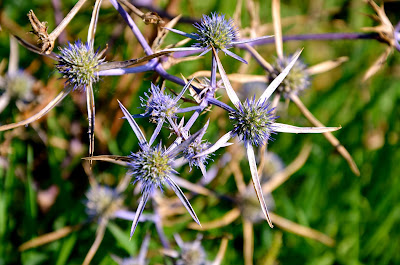On the Intricacies of Identity, Collective Narratives, and Removing the Veil
“They have given an inadequate, distorted, and occasionally, a grotesque picture of Moslems and Islam.” - Edward Mead, Foreign Affairs, 1929
Whether my pins are in the air or on the floor, one of my most consistent identities is that I am Canadian, which, I know, incites much teasing due to the obscurities of its definition. I will not claim to know what intricate puzzle pieces are needed to create a national identity or how to delicately piece them together. But, I will claim that my growing up in Canada sent me out into the world with a brain pre-programed with rights, constitutional freedoms, and a lifetime of influences attempting to politicize my interactions with those from different cultures.
I have been inundated with media filled with negativity towards Muslims and Arabs. I have seen the news reports about Arab terrorists inciting fear and violence in all corners of the world. I have read about the intricacies of Islam that we, with our Western conception of the world, can not comprehend - like the Hijab or polygamy. I watch the hollywood-ized versions of the gruesome deaths of terrorist leaders like Bin Laden and hear the constant cynicism regarding peace in the Middle East. And I hear the racial slurs of my fellow Canadians disguised as light-hearted jokes.
I hold an honours degree in War and Human Rights from the Nation’s Capital’s university. I have written papers on the strength of the media in shaping social conceptions of conflicts around the world and I have studied the industrial military complex within my own nation and that of our neighbours to the South. And while I wrote papers on the politicized relationship between
The coupling of military and propaganda allows us to comfortably remove humanity from an entire population of people - the constant disregard of the Palestinian point of view in peace-processes, discussions and overall media coverage of this conflict is a direct outcome of this coupledom. As a result, Palestinians have been rendered voiceless ghosts in their own existence and struggle.
As a teacher here, I possess access to the most vulnerable population of this country: it’s children. While discussions on the conflict are limited, I am sometimes offered the most innocent glimpses of occupation through these children. I am told stories of streets turned black from bombs, long nights without sleep but full of fear, denied entry to sacred religious sights, bullets, home invasions and bulldozers. I am asked questions like, “Why do they send us food when what we need is freedom?” or more hauntingly, “Why should we talk about what is happening here? No one cares about us. No one is coming to help us.” As young as eight years old, abandonment has burned an aching home within the rib-cages of Palestinians.
I urge everyone reading this to begin working towards viewing this war from a human perspective. Eliminate Western media from your sources for information as their mechanisms of denial are forceful and full-sweeping. Read, rather, personal narratives from this area. Read, rather, the twitter feeds of Palestinians living in constant fear of night raids, missiles, and unlawful detention. Read instead personal accounts from foreigners living here for the personal and collective narrative of this country - these people - is much more in tune with reality than anything you will see on your televisions or in your newspapers.
Know that while you are lost in the pull and sway of labels like ‘terrorist’, ‘aggression’ and ‘retaliation’ there is an entire narrative of children, women, and men that is being erased from history. Know that, above anything else, “silence is complicity”.


Comments
Post a Comment